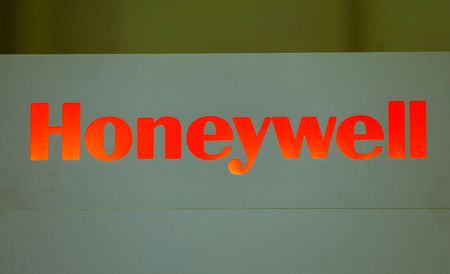By Chris Prentice and Tyler Clifford
(Reuters) -U.S.-based manufacturer Honeywell International Inc on Monday said it has agreed to pay about $200 million to settle criminal and civil corruption investigations in the United States and Brazil.
The U.S. Justice Department and U.S. Securities and Exchange Commission (SEC) each announced the resolution of parallel investigations relating to bribes that Honeywell paid between 2010 and 2014 to a high-ranking official at Brazil’s state-owned oil company Petrobras to secure business.
The SEC charges also relate to payments Honeywell’s Belgian subsidiary made to an Algerian government official in 2011. Those bribes involved Monaco-based oil consultancy Unaoil, which has previously been charged by global authorities over a 17-year scheme to pay bribes to officials in nine countries.
Honeywell Chairman and Chief Executive Officer Darius Adamczyk said the company is “pleased” to have the matter behind it, noting that it had received full cooperation credit.
About $160 million of the total amount Honeywell said it will pay will go to pay U.S. civil and criminal penalties.
Later on Monday, Brazil’s government confirmed Honeywell’s statement by saying the company would pay about 638 million reais ($120 million) to settle the case, with around 70% destined for Petrobras.
U.S. prosecutors agreed to defer potential prosecution against the firm for three years in exchange for a criminal penalty of about $79 million and promise of continued cooperation in any other investigations, among other things, the Justice Department said.
Honeywell agreed to pay another $81 million civil penalty to resolve the SEC’s charges, though almost half is expected to be offset by payments made to Brazilian authorities, the SEC said.
($1 = 5.3094 reais)
(Reporting by Chris Prentice and Tyler Clifford; Additional reporting by Peter Frontini in Sao Paulo; Editing by David Gregorio and Paul Simao)

